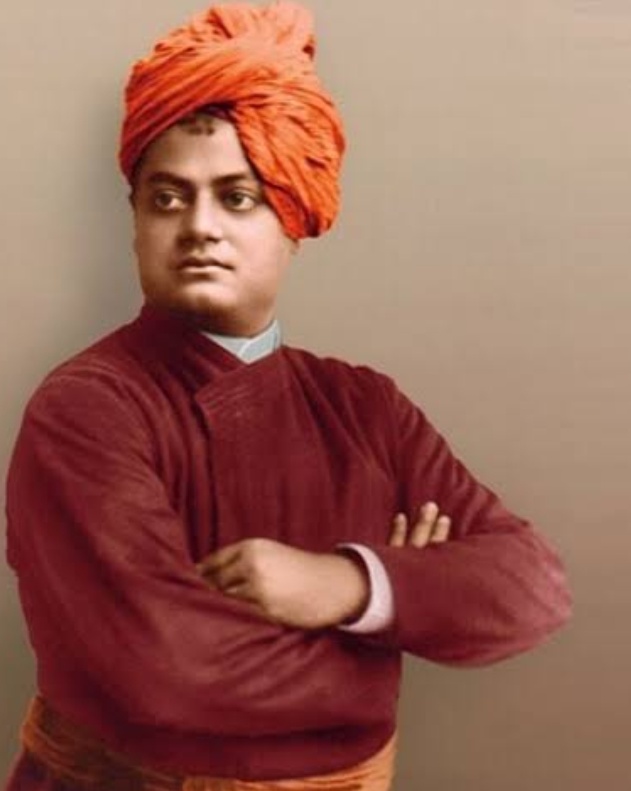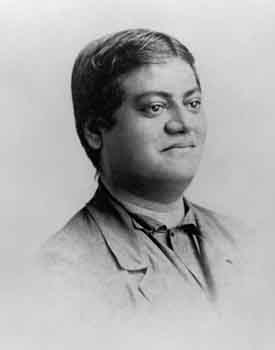Swami Vivekananda: A Revolutionary Sanatani
The Challenge of Understanding Vivekananda
Understanding Swami Vivekananda’s profound spiritual and intellectual depth is a daunting task. His own words, “You need to be a Vivekananda to understand Vivekananda,” reflect the complexity of his teachings and persona. His reluctance to write about his master, Sri Ramakrishna Paramahansa, further emphasizes the difficulty in fathoming such spiritual giants.
Swami Vivekananda: The Ambassador of Hinduism to the West
Vivekananda was a pioneering figure in introducing Hinduism to the Western world. His speech at the 1893 World’s Parliament of Religions in Chicago, coincidentally on the date of the future 9/11 attacks, marked a historical moment. He advocated for religious tolerance and the universality of Hinduism, drawing significant attention and admiration in the West. His travels across the USA and Europe further spread his message, earning him widespread acclaim and a diverse following.

Audio Description: Swami Vivekananda’s historic speech at the World’s Parliament of Religions in Chicago in 1893. His speech is renowned for its powerful delivery and its message of religious tolerance and universal acceptance. It began with the words “Sisters and Brothers of America,” which was met with a two-minute standing ovation from the audience, appreciating his sentiment of universal brotherhood.
In his address, Vivekananda introduced Hinduism and its philosophies to the Western world, speaking about the importance of both tolerance and the acceptance of all religions as true. His eloquent speech was infused with the principles of Vedanta and the spirit of the Upanishads. He called for an end to fanaticism and for the embrace of an inclusive approach towards faith and spirituality.
Vivekananda’s oratory skills were highly regarded, and he was known to speak with a resonant voice that carried both conviction and warmth. The impact of his words at the Parliament is credited with increasing Western understanding of Eastern religious and philosophical thought and establishing Hinduism as a major world religion.
It is a recording related to the first part of Swami Vivekananda’s speech, from his appearance at the World’s Parliament of Religions in Chicago in 1893.
The Influence of Vivekananda’s Teachings
Vivekananda’s teachings extended beyond spiritual realms, influencing early Indian nationalism. His Western disciple, Margaret Noble (Sister Nivedita), became a significant proponent of his ideologies. The establishment of Vedanta societies worldwide reflects the lasting global impact of his teachings, drawing parallels to the influence of St. Paul on Christianity.
Swami Vivekananda and Sri Ramakrishna: A Meeting of Great Souls
The encounter between Vivekananda and Sri Ramakrishna at Dakshineswar in 1881 was pivotal. Initially skeptical, Vivekananda was profoundly influenced by Ramakrishna’s direct experience of the divine and his teachings. This meeting marked the beginning of Vivekananda’s spiritual journey under the guidance of Ramakrishna.
Swami Vivekananda’s Leadership and Legacy After Ramakrishna’s Death
Following Ramakrishna’s demise, Vivekananda emerged as a leader, guiding his fellow disciples towards monastic life and emphasizing the teachings of Ramakrishna. His extensive travels across India and abroad helped spread Hindu philosophy and shaped his vision for integrating spirituality with national progress.
Vivekananda’s Return to India and His Emphasis on Service
Upon his return to India in 1897, Vivekananda’s focus on seva (selfless service) as a path to spiritual perfection became central to his teachings and the Ramakrishna Mission. His perspective on wealth and minimalism contrasted sharply with Western materialism, influencing both spiritual and nationalistic ideals.
Tributes to Vivekananda
Notable figures like Aurobindo Ghosh, Subhas Chandra Bose, MK Gandhi, and Rabindranath Tagore expressed deep admiration for Vivekananda. Their tributes highlight his profound impact on Indian thought and national identity.
Legacy of Swami Vivekananda
Swami Vivekananda’s life and teachings continue to inspire and shape spiritual and nationalistic narratives in India and beyond. His emphasis on understanding and compassion, combined with a deep commitment to spiritual and national development, marks him as a key figure in India’s cultural and intellectual history.
Article Credit: Shri Abhijit Saha, Kolkata, India
Feature Image: Click here to view the image. [Credit: https://www.Wikimedia.org]

Nice read. Abhijit , well compiled.
Thanks for nice words. Also put a word to Abhijit Ji, a fan of Swamiji.
I really treasure your work, Great post.
I am not positive where you’re getting your information, but great topic. I needs to spend some time learning much more or figuring out more. Thank you for great information I used to be on the lookout for this info for my mission.
Thank you for providing me with these article examples. May I ask you a question?
You’ve been great to me.